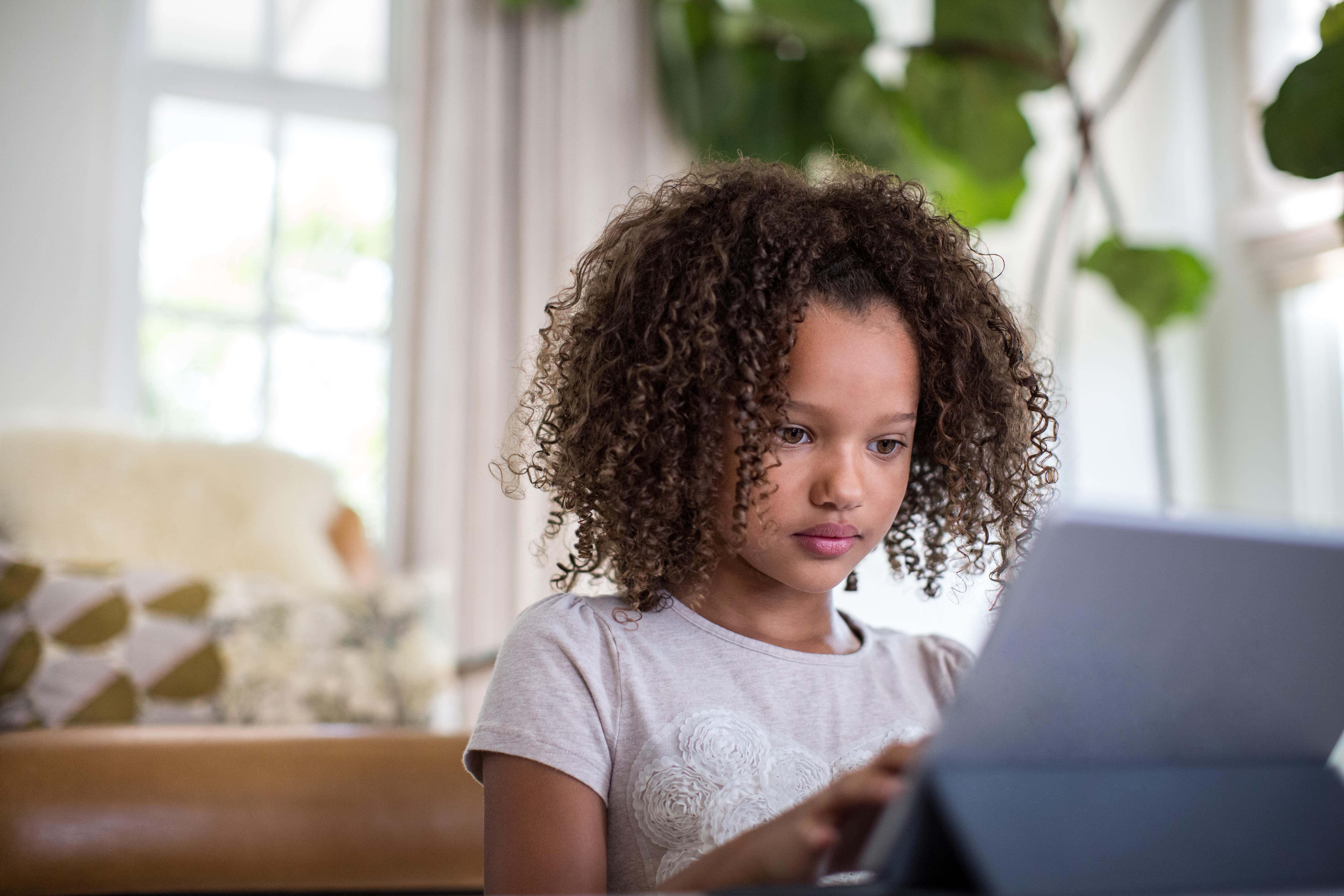Is your child using social media? The safety conversations every parent needs to be thinking about
Social media users are getting younger and younger – so how can we help protect them?

More young children are using social media sites and apps than ever before, new research suggests.
According to Ofcom, 38% of five-to-seven-year-olds now use social media, with WhatsApp, TikTok, Instagram and Discord particularly rising in popularity among this age group – despite the fact users are required to be at least 13.
Around 24% of children aged five to seven now own a smartphone, while 76% use tablets.
When it comes to the parents of five-to-seven-year-olds who do use social media, 76% have had conversations with their youngster about online safety, with 56% doing so at least every few weeks.
It’s an important topic and often a big concern for parents, but what’s the best way to go about it? We asked experts to share their advice…Model healthy relationships
For Lauren Seager-Smith, CEO of the For Baby’s Sake Trust, parents have a role to play in ensuring children develop healthy relationships – whether in the playground, the park or online using social media.
“That includes how we as parents treat others online, how much time we spend online, and whether we are fully present when our family need us, rather than scrolling,” says Seager-Smith.
“It is important to emphasise values like kindness and respect, which are important wherever you are, but there are different dangers online,” she adds. “Children have more access to strangers and groomers who may mean them harm, and they may also access content that could harm their emotional and mental health.”
She notes that children may also feel under pressure to have many ‘friends’ and followers on social media. Parents and carers can also help here, by modelling the value of nurturing deep, meaningful friendships, over looking popular with high follower numbers.
Educate yourself about the apps and sites they’re using
While most are familiar with Facebook and Instagram, Emily Norris, parenting expert and author of Things I Wish I’d Known: My Hacks For A Tidy Home, Happy Kids And A Calmer You, doesn’t think many parents know about the likes of Snapchat and Roblox – which tend to be more popular with younger generations.
“But it’s really our business to learn about the apps and websites our children are using,” says Norris.
“Although children have less freedom than we did in terms of say, going out, they have a lot of freedom online – which can be potentially quite dangerous unless we educate ourselves.
“We need to ensure we are aware of the parameters of the apps and any parental controls we can use,” Norris continues.
“Have age-appropriate conversations with your children about online safety and manage their online wellbeing – there is plenty of great advice available for parents on sites like the NSPCC for guidance.”
Provide a secure base for them
Children can easily worry about getting into trouble or upsetting their parents – but open communication within families is vital when it comes to online safety. Parents can help by providing a secure base and safe environment from which their children can make sense of the world.“Parents who offer an emotionally nourishing environment are more likely to have children and adolescents who feel comfortable having safe conversations around complex issues of cyber safety, sex, and consuming harmful content online, such as pornography, bullying and issues related to body image,” explains educational psychologist, Dr Patricia Britto.
“Creating a haven of safety for children is more likely to allow the opportunity for honest conversations, and [for them to ] feel that their parents are emotionally accessible.
“For example, a great way to start a conversation with a child about complex issues is by reminding them who they can talk to if they are worried or uncomfortable about anything they do not wish to share with their parents.”
Seager-Smith adds: “As a parent, the most important thing you can do is encourage your child to share their online life with you, support them to share any worries or concerns, and agree together on what makes them feel good, and what could cause them harm.”
Stay aware of negative body image influences
Fiona Yassin, family psychotherapist and founder and clinical director of The Wave Clinic, says children and young people can also be bombarded with information via articles, images and videos every day while using social media – much of which is untrue, falsified or damaging.
Beauty, health and diet trends can be a prime example of this.
“On social media, young people are constantly bombarded with images that they can compare themselves to. It is a hotbed for paranoia – particularly for young people who are experiencing a transformative phase of their lives where. For many, ‘fitting in’ is paramount,” says Yassin.
It’s a good idea to be mindful of the potential impact on body image, and try to stay alert to early warning signs that your child might need support.
“Setting rules around eating – for example, following a ritual, regime or a numbers-based diet – has the potential to lead to the development of a tricky relationship with food and, in extreme cases, an eating disorder,” says Yassin.
“Our diet-centred culture has developed a moral value system around food, and feeling like you’ve broken ‘rules’ or stepped out of line can solicit negative feelings.”
Bookmark popover
Removed from bookmarks